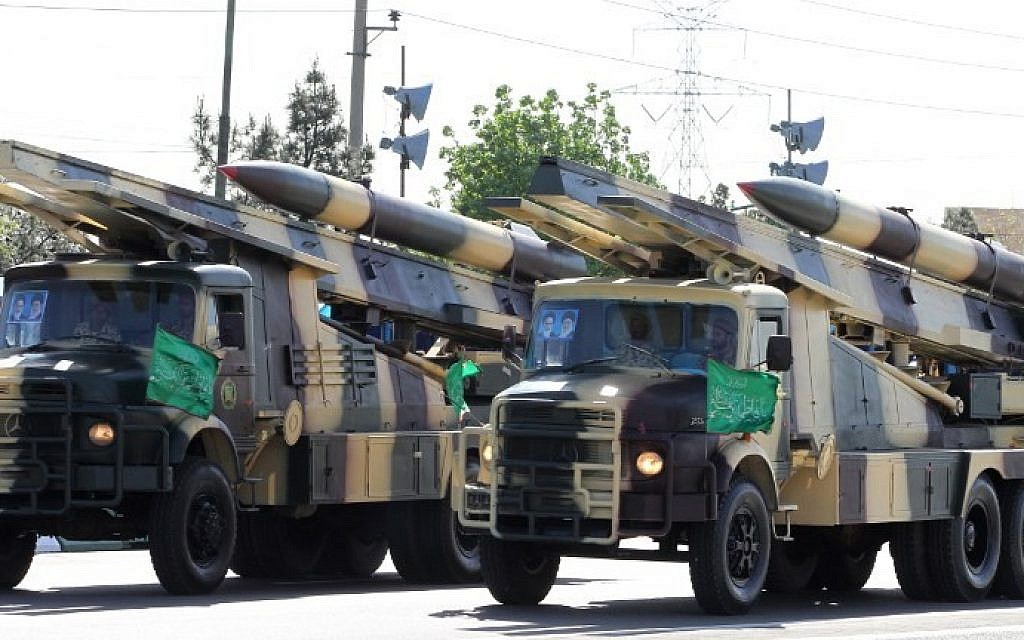Self-Interest Is Dangerous! (The Gaza-Israel Rage!)

Reduce The Fear! (Get The Vaccine!)
May 7, 2021
Temple Mount Syndrome (Break The Cycle of Hate!)
May 26, 2021- Wars are raging from the pandemic to military conflict. The greater victims are the hapless ones who simply want a decent life devoid of irresponsible adventurism.
- The Israel-Palestine wars started earlier than the pivotal 1947-1948 UN Declarations. The wounds are deep, these historical conflicts are likely to escalate and expand. It may simmer but the deeper roots, if not addressed, will again flare up!
- Self-interest and the wider tribalism is the driving force in the conflicts amongst individuals, communities and countries. Unless we love our neighbor EQUALLY as we love ourselves, there is not much hope in the horizon, until we learn.
- Ironically, Jews, Arabs/Muslims, including Christians historically share a “common” God. Unfortunately, it appears all 3 have missed to “love our neighbor as ourselves.” There is much work ahead. Until then, let us brace ourselves!
The Greater Pain
Have we not have enough conflicts and sufferings? The war on this pandemic is hardly over and a more explosive syringe is raining on both Israel and Gaza – the rockets war! This unfolding “intifada” will fuse a bigger scare as if the Covid-19 has not terrified the entire earth enough!
People, religions, and governments continue to hurl pronouncements for their side of the story. Even the bystanders who hardly understand the issue (from clueless politicians to celebrities) have shared their biased view. Those only widen the conflict and misunderstanding.
Meanwhile, as these “giants” continue to hurl their military and social media slings, the larger hapless people (especially women and children) are once again the victims. Can’t they have a peaceful co-existence with people of differing faith or political persuasion?

When Did This War Start?
The usual reference is 29 November 1947 when the U.N. General Assembly Adopted Resolution 181 creating separate states for Israel and Palestine. Israelis accepted the resolution and declared their nation on 14 May 1948. Palestinians, on the other hand, rejected it and opted to follow the national self-determination in the UN Charter.
A day after, Palestinians together with the surrounding Arab nations went to war against Israel. Two more major wars followed — the June 1967 Six-Day War and the Oct 1973 Yom Kippur War — and a number of skirmishes in between. Many innocent lives and livelihood were again devastated during those confrontations.
The late 20th until early 21st century unfolded a proxy war with Lebanon, a couple of intifadas, and the Gaza wars in 2008, 2012, and 2014. These all but deepened the wounds that never healed despite the ceasefires and peace treaties. And now the more vicious Gaza-Israel rocket war.
Will this storm ever end? Hezbollah from Lebanon has not even entered the fray despite scores to settle. They have 150,000 longer-ranged precision rockets. They are aptly called “Hamas on steroids” given that Gaza barely have 14,000 inferior ones. Several rockets have been fired from Lebanon as of this writing and hopefully will not progress to thousands per day!
If the intent is to see how Israel respond to the barrage and provocation especially with their Iron Dome, we might see a progressing conflict that will not only involve Hezbollah but their larger sponsor Iran.

Will It Ever Stop?
Probably not. The animosity and distrust is so deep no amount of reasoning or posturing will suffice. The Arab world may play coy temporally given the lack of parity. Israel is tacitly known to be nuclear capable, a feat that Iran is persistently pursuing. Nor are the Arabs on the same league technologically, a field now touted as the new oil.
Israel has a deep national trauma having experienced the loss of 6 millions Jews during the holocaust. It is understandable that any group with intent to annihilate them (that Hamas, Hezbollah, Iran and other Arab countries have publicly declared) will be viewed with suspicion.
Likewise, the Palestinians have been living like nomads since 1948. And for whatever small piece of land in the Gaza Strip and West Bank, it is fraught with historical political and military adventurism. These have impoverished the people and their future. Frustration is an understatement and has been pestering Palestinians inside Israel and the ones in Gaza Strip.
It is true that Mahmoud Abbas in 2011 said that the “1947 Arab rejection of United Nations Partition Plan for Palestine was a mistake he hoped to rectify”. But after several wars based on their original national self-determination stance, those lost lands may not be easy to reclaim. Should they continue with violence and political maneuverings? If they don’t, do they have a viable alternative?

Ironic Common Deity…
Unfortunately, religion is of no help. And no matter how the pundits would like to picture the larger Middle East conflicts, the greater and paradoxical undertone is a spiritual one. Strangely, Arabs in general do honor Abraham as a patriarch of their faith. So do the Israelites.
Ismael, the older son of Abraham with his concubine Hagar, is the ancestor of the Arabs who majority now are Muslims. Isaac, the promised son of Abraham with his wife Sarai, is the father of Jacob, the patriarch of the Israelites. Hagar, the Egyptian slave of Sarai, and her son Ismael were sent away unceremoniously by Sarai.
Thus, the seed of animosity sprouted way way back. Hagar went back to Egypt and arranged an Egyptian wife for Ishmael. Many centuries later, the Egyptians did have a honeymoon with the Israelites. Joseph, the 11th son of Jacob, became their vizier (second most powerful man). This was during the “7 Years of Plenty and 7 Years of Famine” that saved both the civilizations of the Egyptians and the Israelites.

And Historical Brutal Conflicts…
But when the Moses era came, Pharaoh became a ruthless slave-driver. God rebuked him through Moses in the then horrifying 10 plagues. Ultimately, the Israelites crossed the Red Sea and conquered Canaan (modern day Israel, Jordan, and some parts of Syria and Lebanon).
Who will miss the military conquest of Joshua? He followed the command of YHVH, the God of Israel, to kill ALL the people of Jericho (modern day Tell es-Sultan in West Bank) as well as ALL the people of AI (modern day Bethel also in West Bank). And David? “He defeated the Philistines so thoroughly that they were never again a serious threat to the Israelites’ security.”
A great tragedy struck Israel in the 6th century BC when King Nebuchadnezzar of Babylon (modern day Iraq) conquered Israel’s land, destroyed their first temple, and hurled the Israelites away from their beloved city. And who prompted this Babylonian King to ravish Jerusalem according to Israel’s prophet Jeremiah? It is their very own God (or Allah given that monotheism started with Abraham?)!
Up to the Last 2000 Years!
Time and space will not allow how the larger Arab-Israel conflicts escalated the last 2000 years. But it is worthy to note key empires that affected Arab-Israeli relationship one way or the other: Byzantine Empire (330–1453), Crusader states (1098–1261), Ottoman Empire (1299–1924), and the British Empire (1583–1997) that oversaw UN’s Resolution 181.
So if we are tempted to reference the current struggles based on couple decades past, or even the pivotal 1948 UN Declaration, the conflict unfortunately is more embedded in past centuries and millennia. We might as well blame their “common” God for the quagmire in the Middle East!
Is It Really Hopeless?
Probably not. Arabs, Palestinians, and Jews equally revere Moses as their prophet. And this is what he taught as the standard for peaceful co-existence: love those who are foreigners. Jesus Christ and the Apostle Paul of course summed up the complexities of Moses’ laws into this: love your neighbor as yourselves.
Pretty simple and straightforward. If applied seriously by individuals, communities, and countries no one should find themselves in a barrage of rockets and invectives. But who are we kidding? Moses gave the larger ten commandments in 13th Century BCE and now the violations are still all over the internet!
Even Christian nations are turned into the myopic narrative of being pro-Palestine or pro-Israel. Within these nations are grim realities of expanding inequalities and apathy towards poorer countries. As such, their rhetorics are suspiciously frowned upon as primarily protecting their self-interest.
Conclusion

So the real war is in our heart, our struggle to love our neighbor as ourselves. The military confrontation is but a manifestation of the vengeful and selfish spirit within. The last 2-4 millennia have proven that we keep on failing or dodging the divine equity guidance. Desolations persisted as a result.
It is hard to imagine what people in Israel and Gaza are going through. And inhabitants there are understandable for their social media rants or despair inside their bunkers and buildings. We hardly think of others when death is right before our eyes!
But those outside should be sending balms of calm, help, aid, and prayers if you may, for those who are in the crosshairs of fires and bombs. No matter how dark, hope starts with each one’s heart. Let us fight the urge to be partisan. Send instead empathetic messages devoid of myopic, vitriolic, and divisive thoughts.
Whether we are a commoner or an ambassador conciliating a raging situation, bridging the gap towards peace, should be our drive. In these increasing times of trouble, equally looking at the interest of others is the only rocket that can heal us.

Featured Image:Hosny Salah from Pixabay




